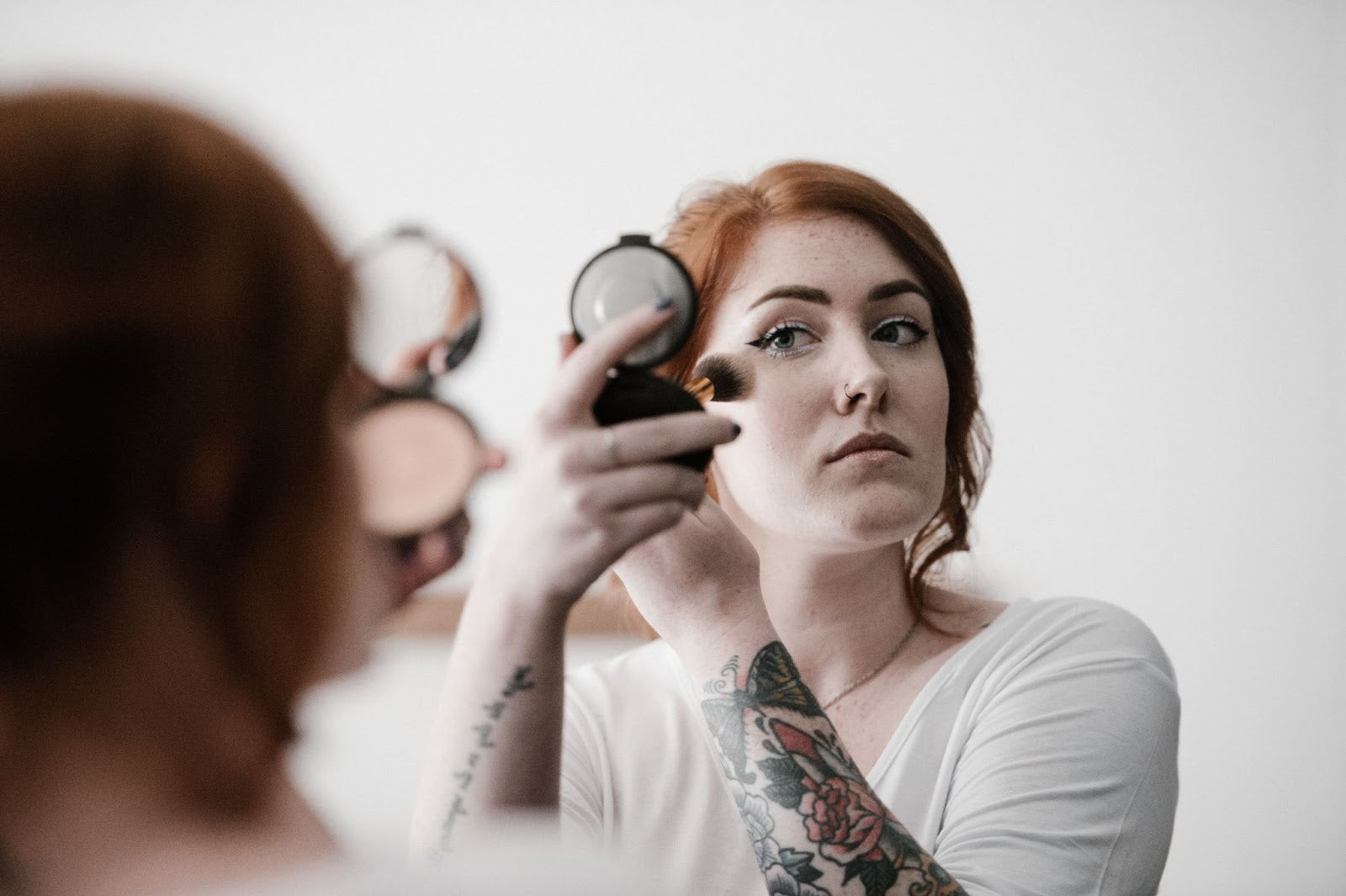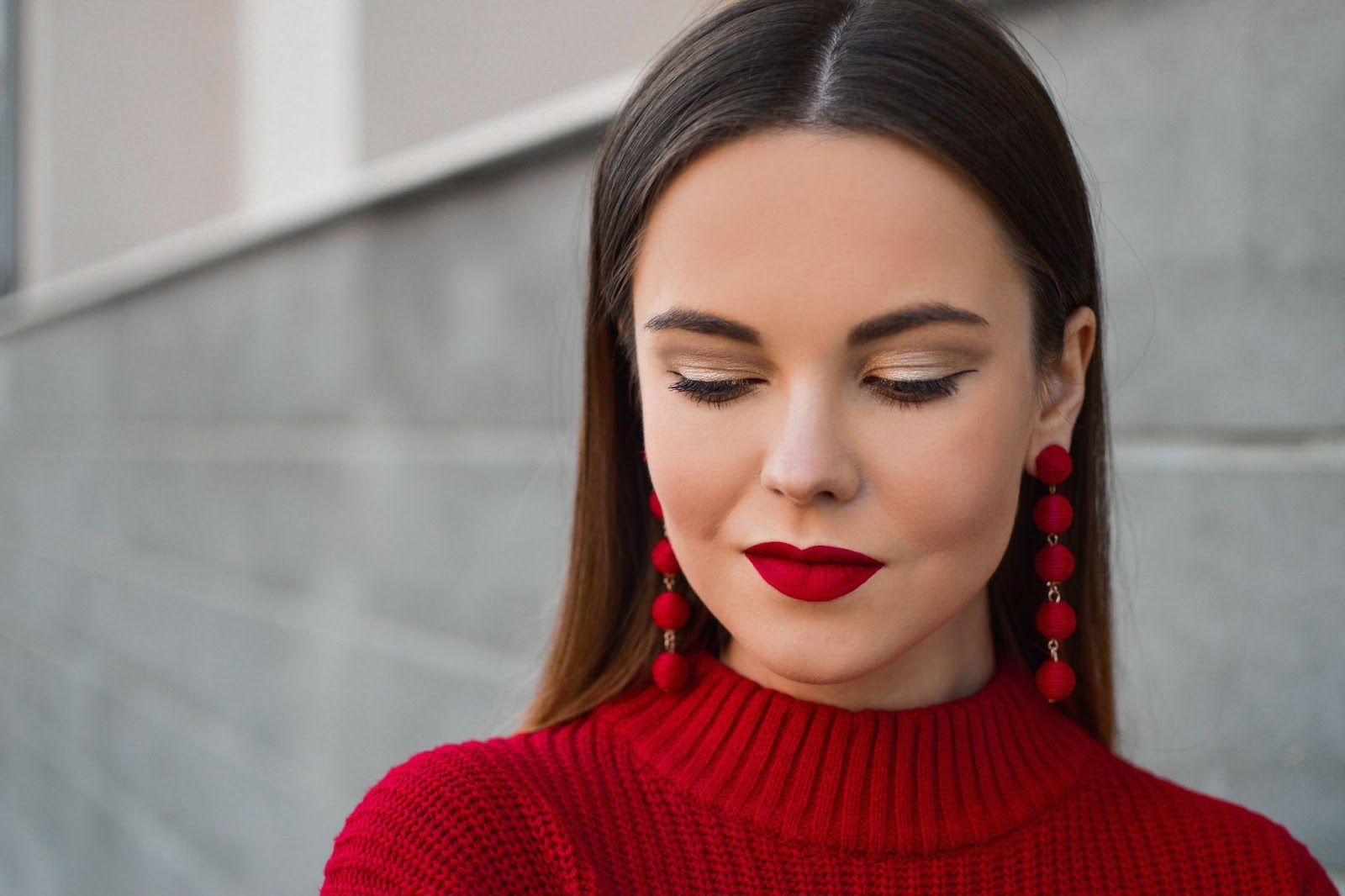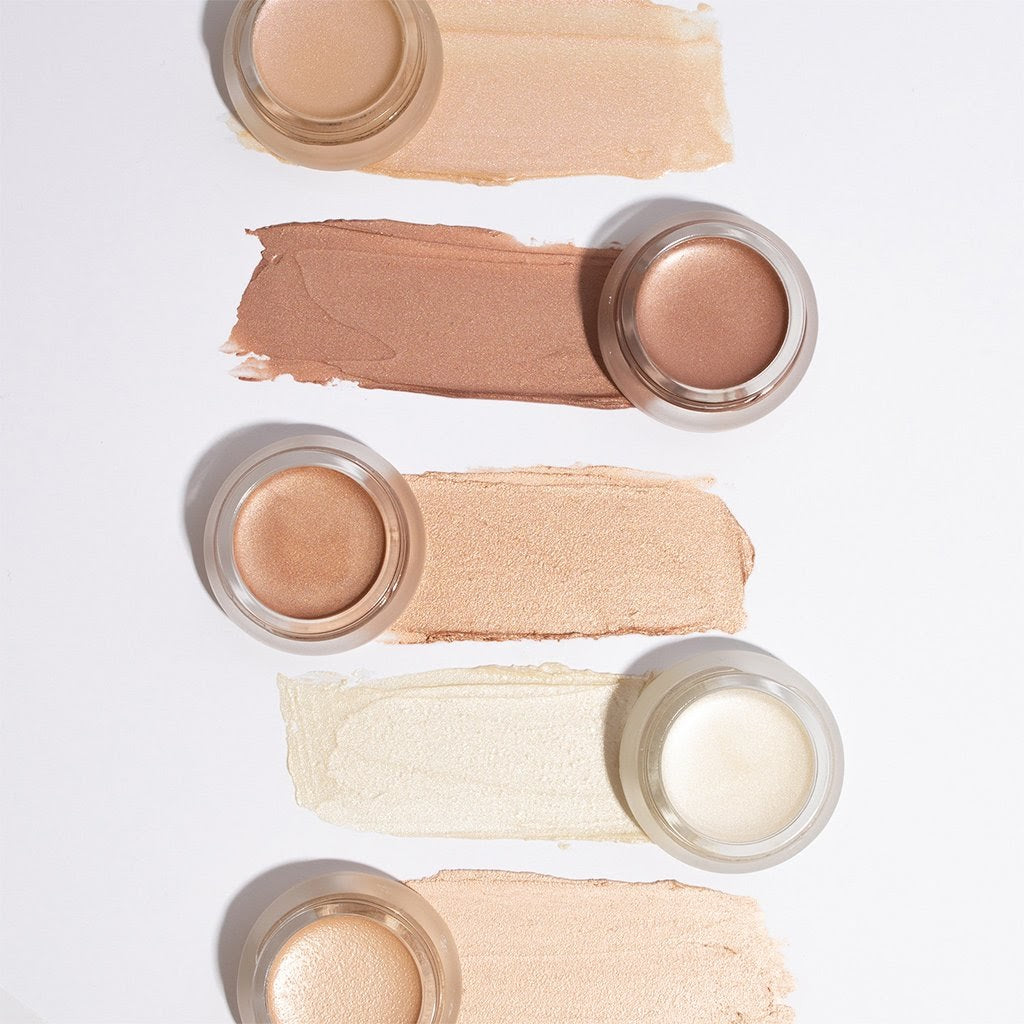Waterproof Makeup: Your Ultimate Guide

As summer approaches, you may find yourself swapping out some of your most trusted products for waterproof versions that can hold up against sweat, swim, humidity, and your best friend’s wedding.
Have you ever wondered, as you apply that second coat of rubbery black mascara, what gives your waterproof cosmetics their water-resistant ability?
We investigated, and the ingredients in some of your favorite waterproof formulas may surprise you.
What is Waterproof Makeup?
Waterproof makeup refers to products that have been specially formulated to resist moisture and stay in place when exposed to water. Waterproof formulas typically contain ingredients that give them adhesive qualities, so they stick to your skin, lashes, brows, etc.
Waterproof makeup may be intended for short periods of water exposure (i.e. crying or sweating) or be so sticky they can withstand a few laps in the pool.
How is Waterproof Makeup Made?
Most companies that manufacture waterproof makeup use some or all of the following ingredients to create products that resist water and stay glued in place.
-
Film Formers. Film formers are the most popular form of waterproofing ingredients. This class of synthetic molecule includes PVP, acrylates, acrylamides, silicones, and copolymers.
These chemicals work by creating a continuous cover over the surface they are applied to, which locks in the cosmetic and protects it from intrusion by water.
- Silicones. A type of film former, these chemicals are added to products to help water bead and roll off. Silicones can be comedogenic, cause breakouts, and are known as skin sensitizers, which can cause irritation to skin and even allergic reaction.
-
Polymers. Polymers work by creating a coating on a product to protect it against water intrusion. Polymers are different from film formers in that polymers eventually evaporate.
Most products that use polymers for waterproofing aren’t actually waterproof, but simply long-wearing. In terms of safety, polymers are a better option than film formers.
- Waxes. Plant-based waxes are an excellent, safer option for making products long-wearing without exposing the skin or eyes to unsafe, harsh chemicals. Plant waxes create a water-resistant barrier, much like they do for the leaves of the plants from which they are harvested.
- Dimethicone. This ingredient is a silicone based polymer that is added to products to keep them from budging when exposed to water. Dimethicone is a known skin sensitizer with potential toxicity to both the body and the environment.
It’s pretty clear we pay a price for waterproof makeup formulas, and the longer and harder they resist moisture, the higher the cost.
Most Common Types of Waterproof Makeup
Not too long ago, the only waterproof makeup products available were eye products. There was a need to provide eye makeup that wouldn’t smear, smudge, or run through a teary romance flick or a particularly rainy day.
Today, practically any product you use on your skin is available in a long-wearing, waterproof formula.
Mascara
The original waterproof makeup item, waterproof makeup is by far the most popular waterproof cosmetic item. Unfortunately, waterproof mascara is not a friend of your eyelashes.
Waterproof formulas require a lot of work to remove (more on that later). Wearing it everyday can make your lashes brittle and weak, which can cause them to break and fall out.
Eyeliner
Waterproof eyeliner helps you avoid darkness around the eyes that can form when eyeliner mixes with your skin’s natural oils.
Waterproof eyeliner can be especially dangerous for sensitive eyes, so it’s important to make sure you are careful in application and never use it inside your lash line.
Brow Gel
Brow gel can be made waterproof by strengthening the formula with silicones that make it perform similar to hairspray. Brow gel can be tinted or clear, but removing a waterproof formula can cause damage to your brows.
Foundation
Waterproof foundation is a sticky product that adheres to the face and is only able to be removed with an oil-based cleanser. These types of foundations are generally occlusive, which means they form a barrier on the skin that is impenetrable by moisture.
Lipstick
Waterproof lipstick gives you the color you want in a formula that stays on… and on, and on. Waterproof lipstick is sometimes infused with primer oils to help give them more staying power, but ultimately, the more long lasting the lip color, the more matte the formula, which may be a deal breaker if you love a glossier look.
Waterproof FAQs
Got questions about waterproof products? We have the answers. Before you shellac your face with tidal-wave proof products, here’s what you should know.
Is There a Difference Between Waterproof and Water-Resistant Makeup?
Technically, there’s no difference between waterproof makeup or water-resistant makeup.
However, if a company does differentiate between waterproof and water-resistant, it usually means:
- Waterproof: The product can withstand continual exposure to water, like submersion.
- Water-resistant: Usually means the product is only able to withstand minimal exposure to water, like some passing summer rain or a quick dip in the pool.
Is Waterproof Makeup Sweat-Proof?
Short answer, it should be. Even though your sweat contains salts and other compounds that could potentially breakdown your makeup, a waterproof formula should have a barrier that resists any kind of moisture, even if it is sweat.
Will Waterproof Makeup Clog My Pores?
It could. The aforementioned chemical ingredients that make waterproof products resistant to water are occlusive type compounds, which means that they create a barrier on your skin that blocks out water.
This doesn’t necessarily mean the ingredient will clog your pores, but there’s definitely a higher risk.
How Often Can I Wear Waterproof Makeup?
You can wear waterproof makeup as often as you want, but understand that it carries a risk, and normally, you simply don’t need that kind of long-wearing coverage.
For instance, when you wear waterproof mascara, you make your lashes brittle and more susceptible to breaking. On a typical day, unless you work outdoors or are a professional swimmer, you don’t really need a waterproof mascara.
It’s also much harder to remove waterproof formulas than non-waterproof counterparts. If you scrub or rub your skin or eyes, you could cause damage and irritation.
Our advice is to only use waterproof formulas when absolutely necessary. We’re talking weddings and funerals.
How Do I Remove Waterproof Makeup?
Getting waterproof makeup off your skin and eyes is a tricky business. These formulas are notoriously sticky, hard to remove, and very stubborn. It’s tempting to scrub and rub the makeup, but that will only create irritation and skin sensitivity.
Here’s how you can remove waterproof makeup formulas safely.
Oils
Almost all waterproof makeup formulas require an oil-based cleanser to remove. Our go-to for removing makeup, especially stubborn waterproof formulas, is pure, organic, raw coconut cream.
Raw coconut cream is powerful in sliding waterproof products off your lashes, brows, and skin, yet gentle enough to do so without irritation. The added bonus is that you’ll be hydrating your skin with nourishing fatty acids while you work.
If you’re pressed for time or on the go, you can also use a coconut oil infused makeup wipe, which can be used dry or damp, to remove your makeup and cleanse your skin. Rinsing isn’t required, because the coconut oil is a natural solvent itself.
Micellar Water
Micellar water is made by combining purified water, glycerin, and mild surfactants which can help gently cleanse the skin. Micellar water forms micelles, which are small, sphere-shaped chemical compounds that latch onto dirt, oil, and makeup and help remove it from the skin.
Micellar water can be effective in removing some waterproof formulas, but not all.
Balms
You can use a skin balm to remove some long-lasting and waterproof makeup formulas, which may be especially useful if you have particularly dry skin.
Balms typically include waxes and oils that can help breakdown waterproof compounds, while moisturizing your skin simultaneously.
Milks
Cleansing milks don’t actually contain milk, but are named so because of their light, milky texture and color. Cleansing milks are usually cleaner in terms of ingredients, and more gentle on your skin than standard cleansers which can contain sulfates and chemicals that cause irritation.
Cleansing milks are usually formulated with a blend of oils and emollients, which should be effective in removing waterproof makeup formulas. However, if your waterproof makeup doesn’t seem to budge, the ratio of oil to other ingredients in the formula may be too low.
Takeway
Everyone loves long-lasting products, and from time to time waterproof makeup is necessary. The truth is, however, most days you simply do not need a waterproof product, we simply get in the habit of wearing them.
Waterproof makeup contains ingredients that can be harsh or potentially dangerous for your skin and body, so they aren’t products you’d ever want to use every day.
Stick to cleaner, greener, ingredients that make products long-lasting, like plant-waxes, and we promise you’ll be just as satisfied with their performance.
Sources:
EWG Skin Deep® | What is DIMETHICONE
Is Eyeliner Bad for Your Eyes? Keep Makeup From Harming Your Health|Cleveland Clinic
The Role of Moisturizers in Addressing Various Kinds of Dermatitis: A Review|NCBI




